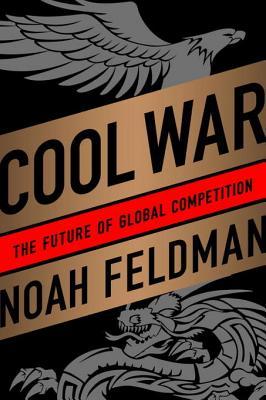
Cool War
The United States, China, and the Future of Global Competition
کتاب های مرتبط
- اطلاعات
- نقد و بررسی
- دیدگاه کاربران
نقد و بررسی

June 24, 2013
Feldman, Harvard professor and a New York Magazine "Most Beautiful Braniac", explains our world's shift from Cold War to "cool war" through the interplay of the US, the current world superpower, and China, the potential soon-to-be world superpower. Unlike the Cold War, where east and west remained isolated, China and the US literally cannot afford to live without each other: simplistically, China gets our debt and we get their trade; less simplistically, countries like Taiwan, South Korea, Iran, and Syria become pawns as the dominant powers negotiate their differences in conflicting ideologies and competitive economies. Russia's collapse is perhaps the greatest inspiration for China's more controlled embrace of global trade and individual freedoms, and Feldman masterfully elucidates China's non-democratic/non-communist new form of government, providing a lens through which he critiques America's own political shortcomings. Moreover, the World Trade Organization has replaced the UN as superpower referee in a context where companies like Apple and Google have much more at stake than the military posturing of aircraft carriers and hawkish politicians. In the end, China maintains that an individual's rights to food and shelter outweigh the importance of the right to vote and free speech, which raises the question: Is democracy enough if burdened by extreme poverty?

June 1, 2013
A brief consideration of the current state of Sino-American relations. In his sixth book, Bloomberg View columnist Feldman (International Law/Harvard Univ.; The Fall and Rise of the Islamic State, 2008, etc.) analyzes the increasingly fraught relationship between the United States and China in the 21st century. Although some may wonder whether or not this slim book might have been better justified as a work of long-form magazine journalism or as a scholarly journal article, Feldman is a sensitive and incisive observer of what he has coined the "Cool War" between the two countries. The author explains that the Cool War manifests itself in the form of tense mutual economic interdependence and tendentious struggles for geopolitical power. A crisp writer, Feldman has a fine eye for telling anecdotes, which he uses to frame nearly every chapter. He breaks the book down into three sections. In the first, "Cool War," he lays out the paradox of Chinese-American relations. In the second, "The Sources of Chinese Conduct," he effectively provides a primer of contemporary Chinese politics for the overwhelmingly American audience that will make up his readership. In the third section, "Global Competition," he examines the main sources of conflict that we will face in the future. Neither overly optimistic nor pessimistic, Feldman lays out a compelling case for why the neither-allies-nor-enemies standing between the two powers is tenuous but not necessarily doomed to topple into hot war. Current affairs books always run the risk of going rather quickly from the New Releases shelf to the remainder bin, but Feldman's book carries enough insight to warrant serious attention from anyone interested in what may well be the defining relationship in global affairs for decades to come.
COPYRIGHT(2013) Kirkus Reviews, ALL RIGHTS RESERVED.

























دیدگاه کاربران